
Coronavirus: Experts warn of bioterrorism after pandemic
The Council of Europe has warned of a potential increase in the use of biological weapons, like viruses or bacterias, in a post-coronavirus world. Terrorists would not forget "lessons learned" during the pandemic.
Security experts from the Council of Europe have warned that the global coronavirus outbreak may increase the use of biological weapons by terrorists in the future.
"The COVID-19 pandemic has shown how vulnerable modern society is to viral infections and their potential for disuption," the council's Committee on Counter-Terrorism said in a statement.
Read more: Ricin — an easy-to-obtain bio-weapon from the internet
The deliberate use of disease-causing agents — like viruses or bacterias — as an act of terrorism "could prove to be extremely effective."
Damage to humans and economies could be "significantly higher" than that of a "traditional" terrorist attack.
Read more: 'Islamic State' exploiting coronavirus and conflict to rise again
European states need coordinated effort
The council's security experts called on the 47 Council of Europe member states to prepare to fight a biological weapons attack by engaging in training exercises.
"The Council of Europe has no concrete evidence of a heightened threat from bioterrorism due to the pandemic," spokesperson Daniel Höltgen told DW. "It does, however, underline the need for continued international cooperation in this field."
UN Secretary General Antionio Guterres said in April he sees a growing danger of bioterrorism attacks that aim to create a pandemic similar to that of the coronavirus.
The Council of Europe is based in Strasbourg, France. Its aim is to uphold human rights, democracy and the rule of law in Europe.
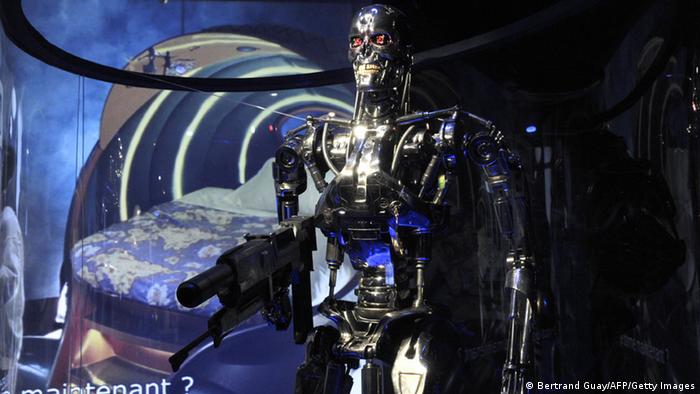
AI: 'Third revolution in warfare'
Over 100 AI experts have written to the UN asking them to ban lethal autonomous weapons — those that use AI to act independently without any human input. No "killer robots" currently exist, but advances in artificial intelligence have made them a real possibility. The experts said these weapons could be "the third revolution in warfare," after gunpowder and nuclear arms.
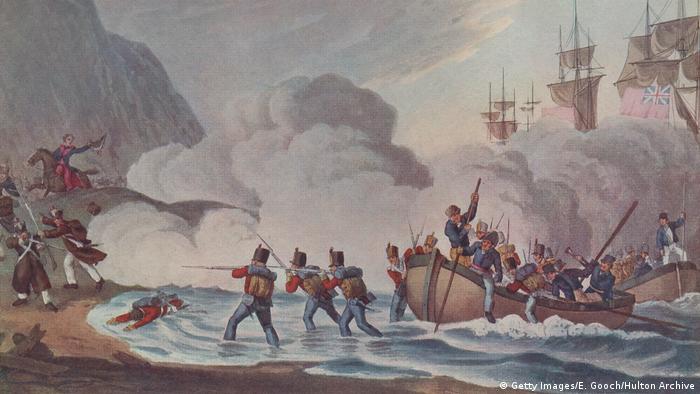
Gunpowder
The "first revolution in warfare" was invented by the Chinese, who started using the black substance between the 10th and 12th centuries to propel projectiles in simple guns. It gradually spread to the Middle East and Europe in the following two centuries. Once perfected, firearms using gunpowder proved to be far more lethal than the traditional bow and arrow.
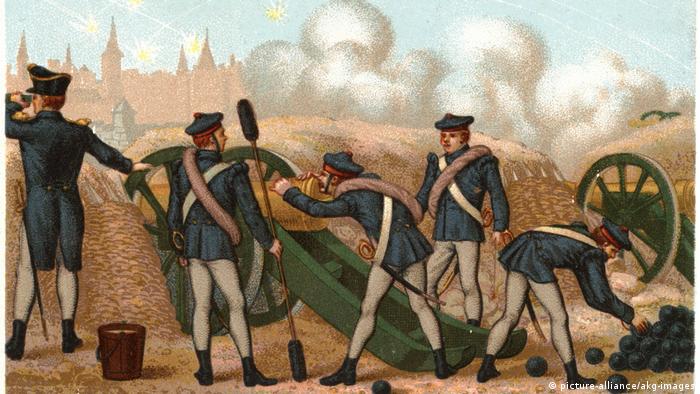
Artillery
The invention of gunpowder also introduced artillery pieces to the battlefield. Armies started using basic cannons in the 16th century to fire heavy metal balls at opposing infantrymen and breach defensive walls around cities and fortresses. Far more destructive field guns were invented in the 19th century and went on to wreak havoc in the battlefields of World War I.
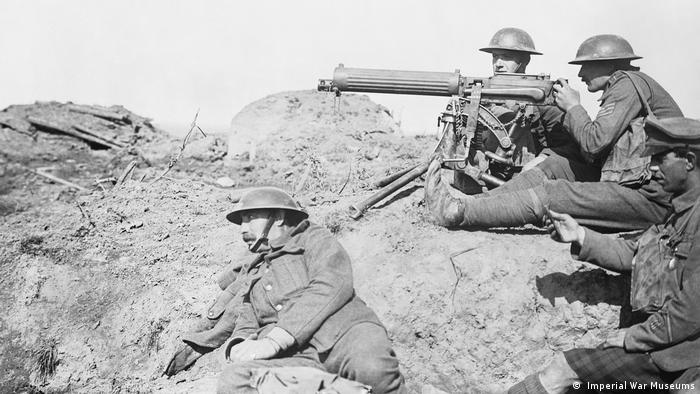
Machine guns
Guns that fire multiple rounds in rapid succession were invented in the late 19th century and immediately transformed the battlefield. Machine guns, as they came to be known, allowed soldiers to mow down the enemy from a protected position. The weapon's grisly effectiveness became all too clear in WWI as both sides used machine guns to wipe out soldiers charging across no man's land.
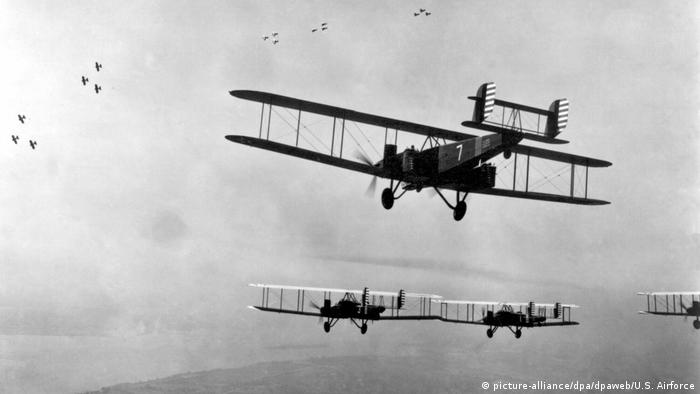
Warplanes
Military thinkers did not ignore the invention of the first airplane in 1903. Six years later, the US military bought the first unarmed military aircraft, the 1909 Wright Military Flyer. Inventors experimented with more advanced fighter and bomber aircraft in the following years. Both became standard features in many of the national air forces established by the end of WWI.
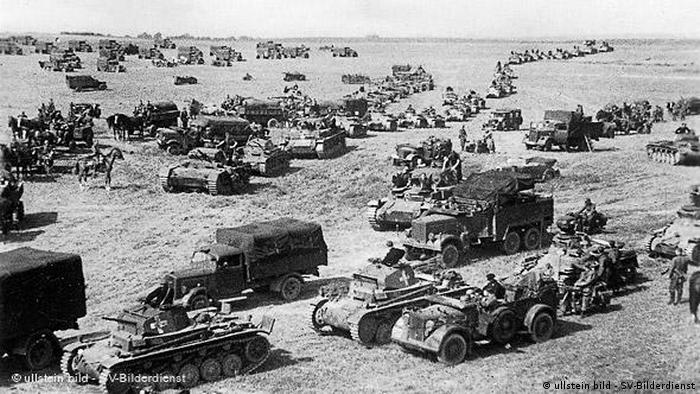
Mechanization
Armies had traditionally used soldiers and horses to fight and transport military equipment. But around WWI, they started using more machines such as tanks and armored vehicles. Faster and more destructive armies were the result. Nazi Germany put this new form of "mechanized warfare" to destructive effect in WWII using an attack strategy known as "Blitzkrieg" ("lightning war").
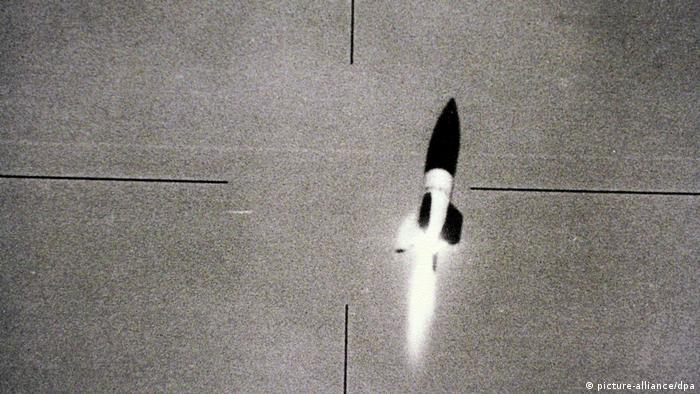
Missiles
Although artillery was effective, it had a relatively limited range. The missile's invention in WWII suddenly allowed an army to strike a target hundreds of kilometers away. The first missile — the German V-2 — was relatively primitive, but it laid the foundation for the development of guided cruise missiles and intercontinental ballistic missiles (ICBM) capable of carrying nuclear warheads.
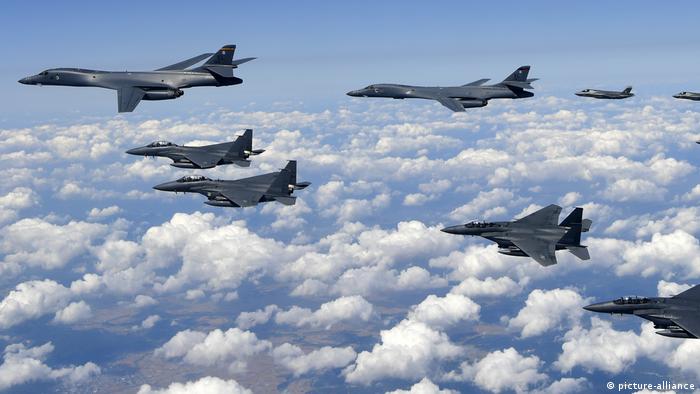
Jet engine
Jet aircraft first saw action alongside traditional propeller airplanes at the end of WWII. Jet engines dramatically increased an aircraft's speed, allowing it to reach a target quicker and making it far harder for an adversary to shoot it down. After WWII, military reconnaissance planes were developed that could fly higher than 25 kilometers (15.5 miles) and faster than the speed of sound.
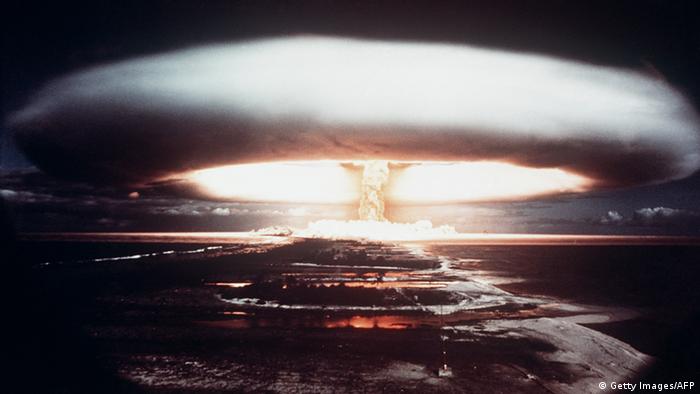
Nuclear weapons
The "second revolution in warfare" announced its horrific arrival on August 6, 1945 when the US dropped the first nuclear bomb — "Little Boy" — on the city of Hiroshima in Japan, killing between 60,000 and 80,000 people instantly. In the Cold War that followed, the US and Soviet Union developed thousands of even more destructive warheads and raised the specter of a devastating nuclear war.
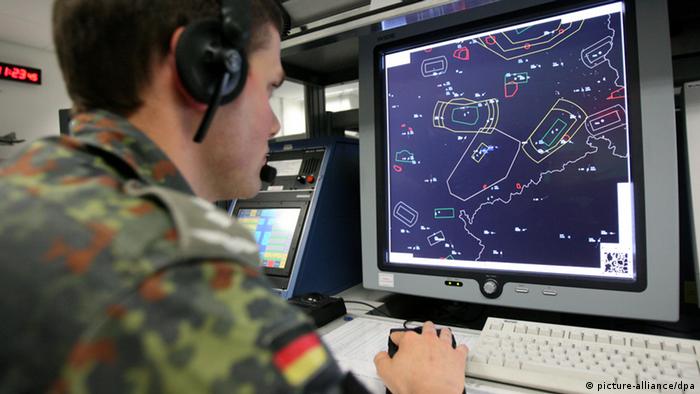
Digitization
Recent decades have witnessed the ever more prevalent use of computers to conduct war. The devices made military communication quicker and easier and radically improved the precision and efficiency of many weapons. Armed forces have recently focused on developing cyber warfare capabilities to defend national infrastructure and attack foreign adversaries in cyberspace.
Author: Alexander Pearson
kp/rt (dpa, AFP)